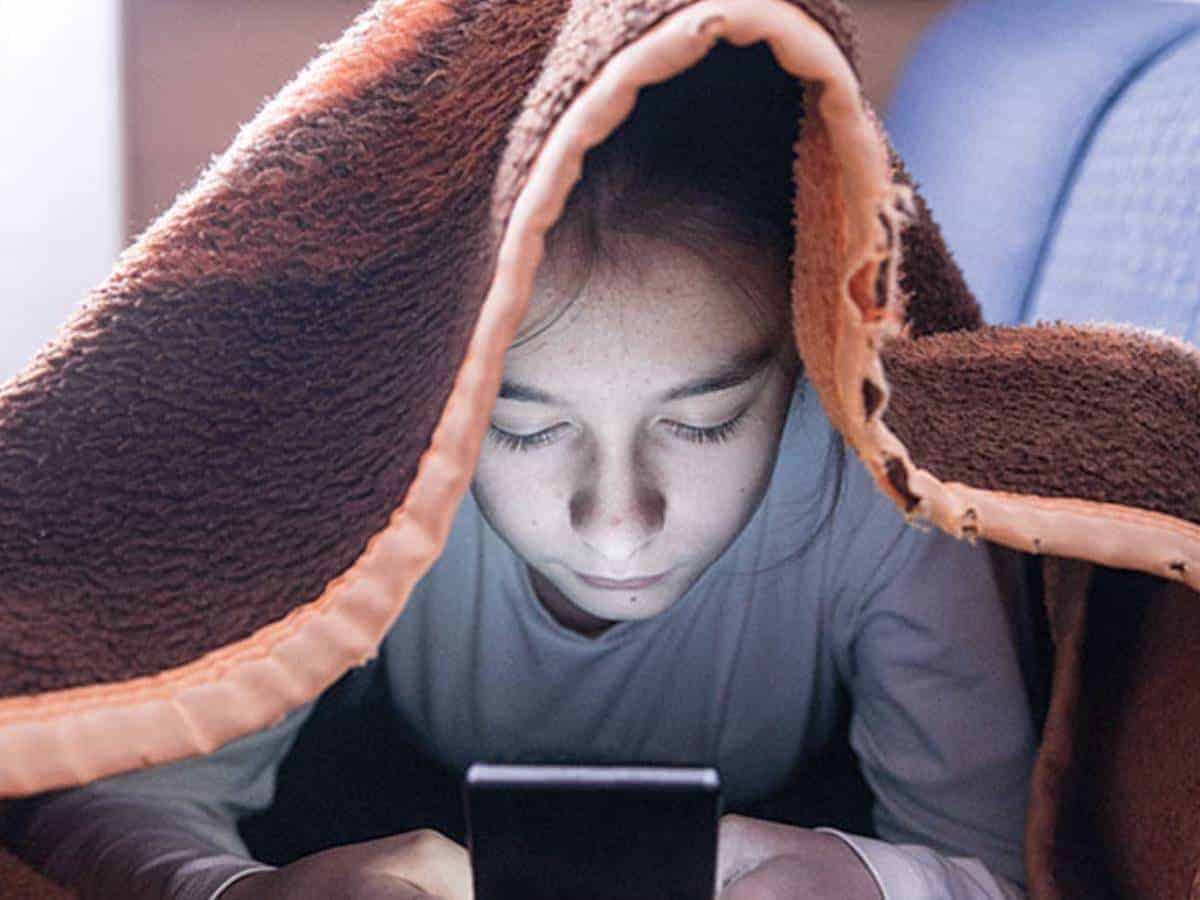Hyderabad: The pandemic appears to be a never ending tale; while the imposed lock down is all about no work and no activity. This had also shut schools and offices due to which several are stuck home with phones to pass time.
This excessive use of cell phones both in the name of online classes and pass time had lead to psychological disturbances among the crowd. The research suggests that every fourth person; constantly on their smart phones might be anxious or depressed. The study also suggests that extreme uses of smart phones are leading to psychological imbalances.
Handheld devices, with their countless applications and entertainment options and their constant presence at our fingertips, make it easier than ever before to disconnect with the problems [and] stresses of reality, and avoid actively engaging with them. But over time turning to the device whenever an uncomfortable situation or feeling arises can become an escapist pattern of behavior, and may make people more vulnerable to stressors due to insufficient emotional exercise.
It is noted that individuals with higher anxiety/ depression use [phone] devices more intensively; with the believe that using devices more intensively can eventually lead to the development of anxiety/depression. Or it can mean that there is a cyclical relationship.
People become more depended on phones
When one gets used to a cell phone, they also become slowly dependent on it. It becomes very difficult, then, to be apart from it for any period of time. We start fidgeting and worrying when our cell phones start losing battery. Moreover, new research shows how people get anxious when they can’t answer calls or reply to texts once they see their mobile phone’s screen light up, even if they are in a meeting, or a lecture.
Weakens immune system
We all have noticed the oily, greasy residue on the screen of our cell phones. This residue contains more disease-causing germs than found on a toilet seat. These germs attack the immune system of humans and weakens it. Thus, making an individual more prone to diseases.
Hinders sleep
When you have games, videos, messaging apps etc. in a fist-sized machine, why would you ever want to sleep? It is becoming more and more difficult for teenagers and adults alike, to keep their cell phones down at the end of the day, and go to sleep. Some even use them for studying, or planning their work, but even so, the fact that it hinders your sleep and gradually disturbs the sleeping-pattern, remains.
Hampers your thinking process
Since, internet, computers and cell phones have occupied an important place in our lives, we have failed to realize that they have made us dependent on them. Whenever we want to do something, googling about how to do it is the first thing we do. For example, when we want to write something, we search the information on Google, and whatever information we find on the web, we utilise it. Similarly, when we need to draw a simple basic design, pictures from the web are downloaded instantly and then the work is done. The natural process of thinking and using our own creativity has been hampered with this smart technology.
Anxiety and depression
Studies show that because of the hyper-vigilance caused by cell phones (the need to check phones for notifications), the adrenals in our body remain constantly activated and cortisol levels remain high. The high cortisol-stress hormone-levels increase our blood pressure, heart rate, and anxiety.
Weight management and fitness level
Children these days spend their time doing everything on (often their own) phones. They know more about phones than their adult counterparts, and while some adults find that impressive, it is actually very unhealthy for the children. Not getting fresh air, not playing outside, etc., can not only cause health issues but even cause social alienation.
There is an urgent need to maintain balance between the pros and cons, not only when it comes to cell phones, but rather all forms of technology and devices.

